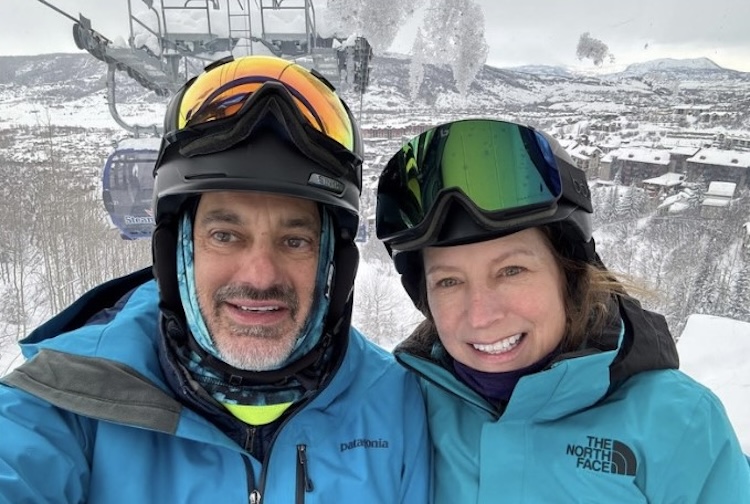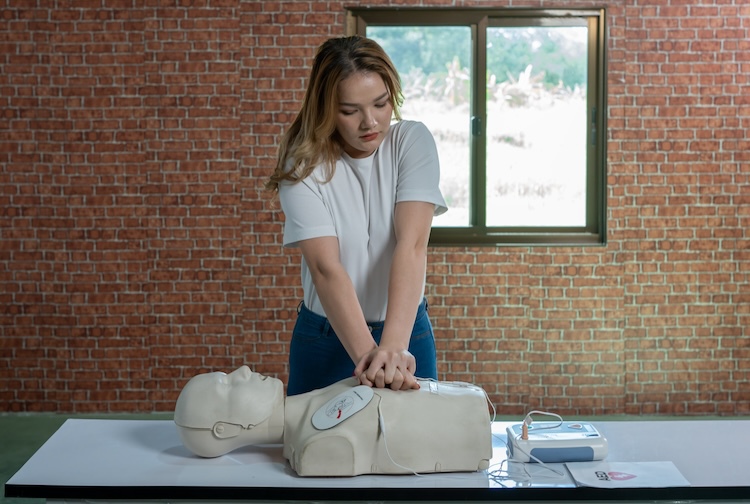
Hypertension change agents
Students to become the teachers in blood pressure pilot program.
June 27, 2022
A VCU Health Pauley Heart Center pilot program expected to launch this year in Richmond area schools will target multigenerational populations to learn about hypertension and associated health risks. Called Teach BP, the program will educate fourth- and fifth-graders about blood pressure and prepare them to share what they’ve learned with family members.
“Research has shown that children can affect the health care of their family. Why not use them as change agents?” said Sangeeta Shah, M.D., a VCU Health Pauley Heart Center cardiologist. Teach BP builds on a similar program Shah developed for Girl Scout troops in New Orleans.
“We saw that the concept worked, narrowed down the age group and now want to roll it out in a bigger, broader sense,” she said. “We want to launch it into school systems for boys and girls.”
Like the Scouts, the students selected for Teach BP will learn why blood pressure is important, how to take blood pressure readings and what those readings mean. They will learn that high blood pressure is a “silent killer” that can affect your brain, heart, eyes and kidneys, causing heart attack, stroke and kidney failure, even blindness. Armed with that knowledge, the students will be encouraged to model and influence behaviors with a goal of showing family members that hypertension can be prevented and doesn’t have to be an inevitable health condition.
Teach BP is a priority project for Pauley. In 2019, more than a half-million deaths in the United States had hypertension as a primary contributing cause. And for adults living with hypertension, only about 1 in 4 have it under control. Additionally, high blood pressure is more prevalent in Black and brown adults than whites. In Richmond — a city with about 40% Black residents — research shows “an epidemic of hypertension” and dramatic differences in life expectancies from neighborhood to neighborhood, even those just 5 miles apart.
“We know that heart disease and hypertension are prevalent in these high-risk areas. We know treatment includes education awareness and medication adherence, lifestyle changes such as nutrition and exercise. But how can we make that human connection with the adults in these communities to take action? So, that's how our program Teach BP came about,” said Carrie Mills, Pauley’s senior director of development.
And the timing couldn’t be better.
“We have a wonderful [advisory] committee who really loved the vision that Dr. Shah brought,” Mills said. “[We asked] how can we replicate this program that she tested in New Orleans on a smaller level in the school systems here in Richmond, and how do we start to make an impact, in a small way, not just with students, but also their parents? Because research shows that students have the ability to impact their parents’ health behaviors. We're really excited to test out Teach BP and see what we can do on a local level that could serve as a national model.”
Teach BP will consist of four hourlong, hands-on instructional sessions aided by students from the VCU schools of pharmacy and medicine. The program will culminate in a family night, at which time the participants will showcase their creative, blood pressure related projects, and family members will have an opportunity to get blood pressure screenings.
“I think this project is really, really good for the community,” said Napoleon Peoples, Ph.D., chair of the VCU Health Pauley Heart Center Community Engagement Task Force. A key project for the group, “Teach BP not only brings people together, but it helps people to understand that you really need to pay attention to your health. In particular, high blood pressure is a very important issue that we are all facing, particularly in the African American community.”
The research aspect of Teach BP is important, said Amy Ladd, Ph.D., assistant director of Pauley Heart Center. “This is the first educational program where we're going out into the communities to teach young students about hypertension. By researching the impact this may have, in the form of increased awareness and knowledge of hypertension, in not only the students but also their adult caregivers, we can see if this educational model is effective. If we can prove it is effective, we can use the data to raise additional funding to expand the program to reach more communities.”

.ashx)

